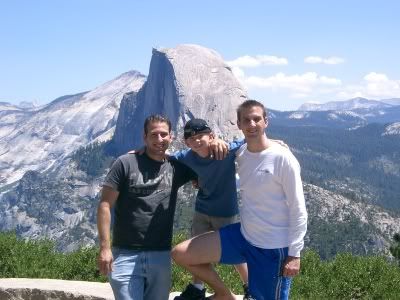God is creative. He created the heavens and the earth. He created every human being uniquely.
To be created in the image of God means to be creative. Acting upon that creativity is a challenging and often scary process but we must not be unwilling to take risks. The following article from Psychology Today illustrates how we might develop our creative self.
The Creative Self
By Hara Estroff Marano
A flash of insight. A solution to a longstanding problem. We all long to express ourselves creatively, admire the capacity to be original. It seems to be part of human nature.
Immersion in creative enterprises is hugely rewarding by itself. And often during that immersion we experience that special state called "flow," a feeling outside of time, of effortlessness that is so extraordinarily satisfying it bestows on us the sense that life is worth living.
How do we develop and nurture creativity within? Many people see creativity as a capacity far beyond them. But it is not.
In a lovely little book entitled Creative Authenticity, artist Ian Roberts argues that at some point you just have to jump in, fears and all. There is something courageous about it.
It's finding what you want to say that's the really tricky part. Usually, it lies just beneath the grip of the conscious mind. It springs from hard-won personal inner synthesis, experience and insight acquired firsthand. In our mind it is not logically structured, but it may take logic to get it expressed.
"Ultimately, it doesn't matter to the world whether you paint or dance or write," says Roberts. "The world will probably get by without the product of your efforts. But that is not the point. The point is what the inner process of following your creative impulses will do to you. It is clearly about process. Love the work, love the process. Our fascination will pull our attention forward. That, also, will fascinate the viewer."
Roberts enunciates a number of principles essential for creative authenticity.
- Searching for beauty. Beauty is something that seizes your attention, stops you in your tracks, silences you. It can be the way light filters through the trees in your backyard or the magnificence of a fifteenth century Italian painting. The subject is irrelevant; it is only a vehicle for your attention, to engage the intensity of your feelings. That intensity is what viewers ultimately respond to.
- Communication. Creativity fundamentally involves expressive power; it is the catching of the "gleams of light" that flash across our mind and forming that vision into something.
- Your home turf. It could be a garden. Or a studio. But you need a creative home base that always stays open for your arrival and bestows on you a readiness to begin your work.
- The Van Gogh syndrome. Don't buy into the myth that creativity is the province of tortured geniuses.
- Your craft, your voice. Practice, practice, practice your craft. It gives you fluency in the creative process and in technique. It's technique that gives life to your creative ideas. Learning your craft opens the channel for your voice to flow.
- Showing up. "Nothing determines your creative life more than doing it," says Roberts.
- The dance of avoidance. Starting is always a psychologically messy process, because there are no rules surrounding what you want to do. Setting up a dedicated space for the practice of your craft helps you shift gears directly into your creative process.
- Full-time or part-time. You can't expect to fly consistently at a high level of inspiration.
- Follow something along. If you are going to say something authentic, you need to stick with an idea for a while, an idea that has personal resonance.
- Wagon train and scout. Creativity involves the interplay between where you are and where you see yourself going to keep your expression growing. Always be on the lookout for new paths, and observe how others solve the problems you face.
- Working method. Creativity is in the process, not in the finished results.
- Limits yield intensity. Unrestrained freedom is a myth, and it's not productive.
- Being ready to show. Don't spend your time marketing your creations. If you spend it creating, you are investing your work with the authenticity that will draw others to your efforts..
- You are more than creative enough. The question is not whether you are creative enough but whether you will free yourself to express it.
- Finding poetry in the everyday. Develop the power to see the ordinary as poetic.
- Holding the big picture. Always keep a sense of the whole. That commits you to making the moves that will ultimately represent what you see.





